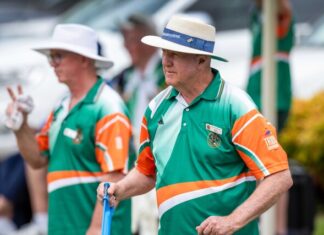A NEW modelling tool that allows land managers to forecast the success of their weed management programs for Chilean needle grass and serrated tussock will be the focus of workshops in May.
Department of Primary Industries project manager Charles Grech said Chilean needle grass and serrated tussock were potentially the worst environmental weeds of native grasslands in south-eastern Australia, invading farms, roadsides and open woodlands.
“Being able to directly contribute to the design of the management program will allow people, to choose which program is best suited to their circumstances,” Dr Grech said.
“Certain management options for these weeds can cause loss of farm income and make producers reluctant to take on a long-term management program.”
Dr Grech said minimising disruption to the farming system is one of the major aims of the modelling tool and he expected strong interest in the model demonstration.
“Chilean needle grass forms dense stands in pastures, dramatically reducing stock carrying capacity and where it has invaded native grasslands, it has reduced native plant diversity,” Dr Greth said.
“Workshops have been planned to gather land managers’ feedback and validate the model for different farm scenarios across Victoria and New South Wales.
“We will be demonstrating the modelling tool and seeking feedback on the long-term weed management program for each farm scenario.”
During warmer months the grass produces large numbers of unpalatable flower stalks and very little leaf material, severely reducing stock carrying capacity.
It also produces large numbers of sharp panicle seeds that penetrate and damage the fleece, skin and eyes of livestock and pets.
Workshops will be held in New South Wales in Goulburn on May 10, Glen Innes on May 12 and in Victoria at Attwood on May 20 in conjunction with Meat and Livestock Australia.
Topics will include chemical, grazing and cropping options across both improved and native pastures, as well as the financial implications of the management program.
To register your intention to attend this free workshop and obtain further details, email charles.grech @dpi.vic.gov.au or phone 9217 4120.
Get the latest news to your email inbox FREE!
REGISTER




